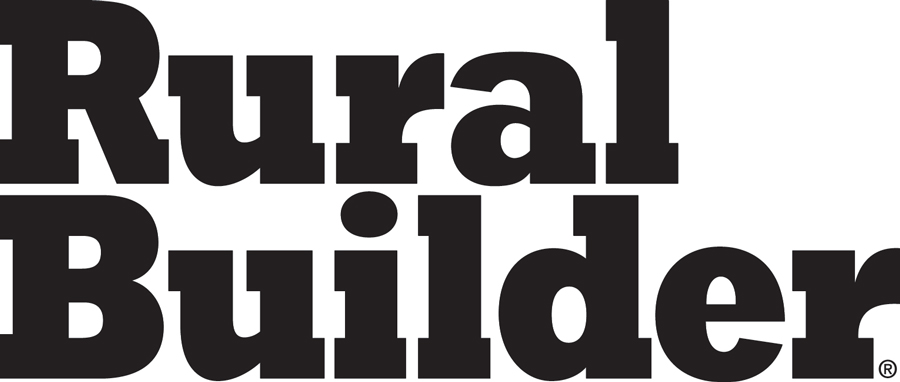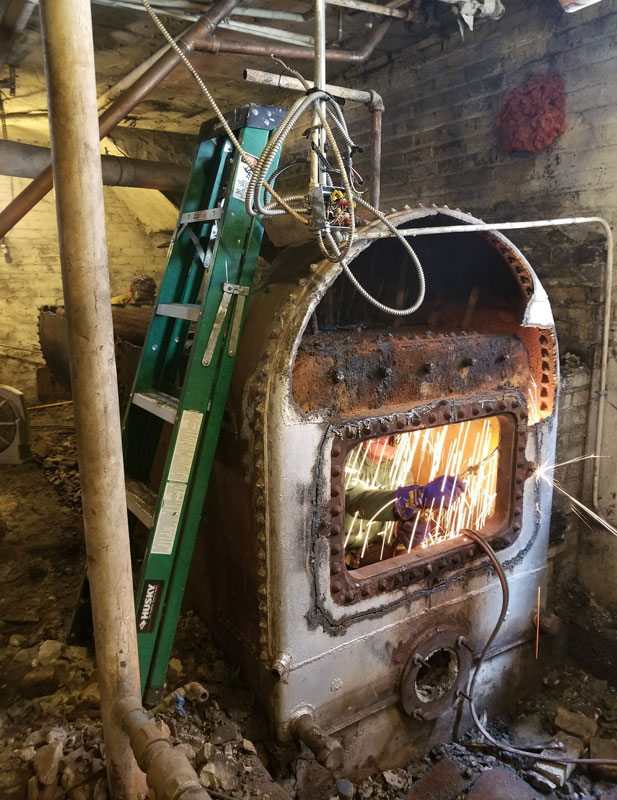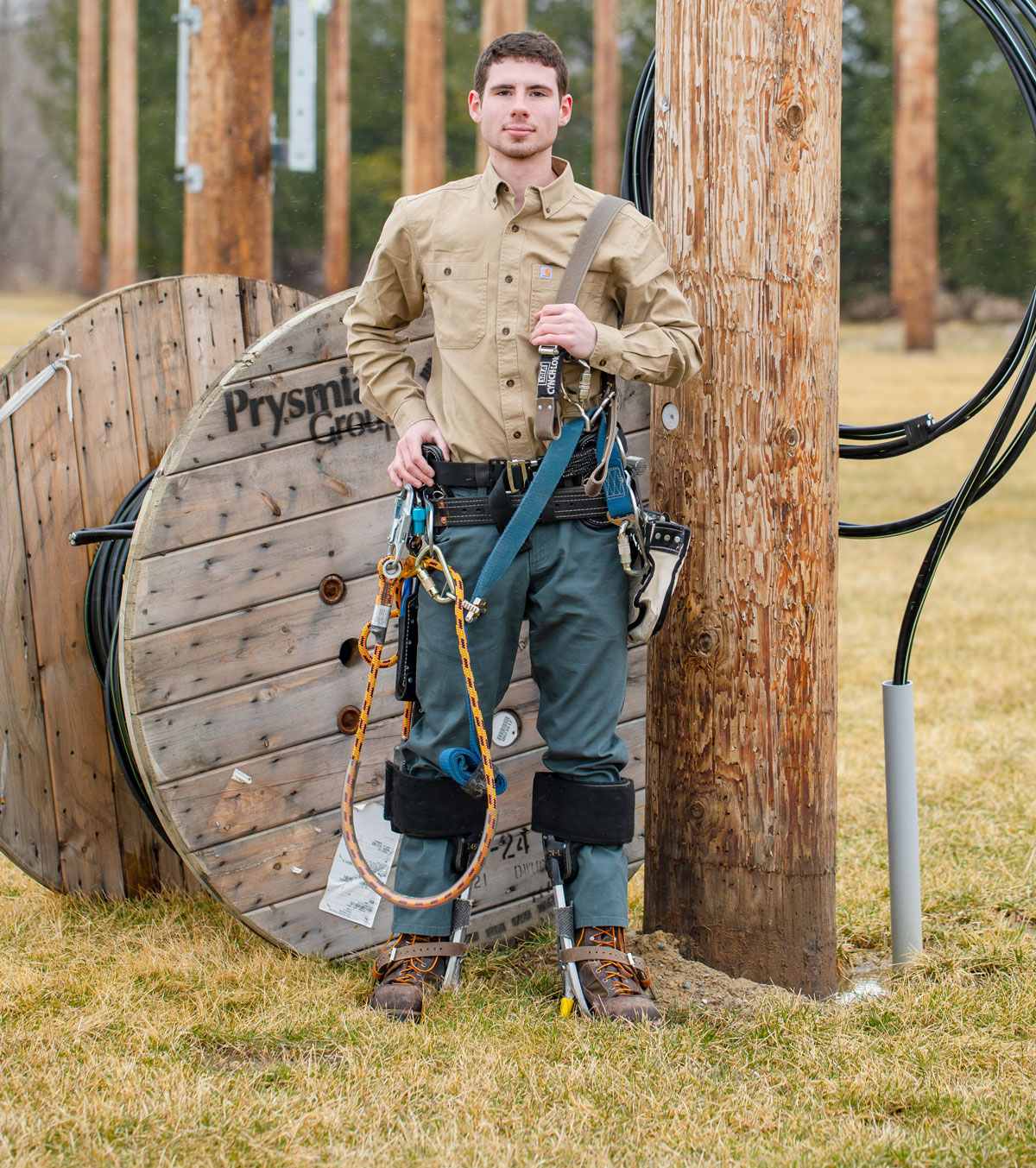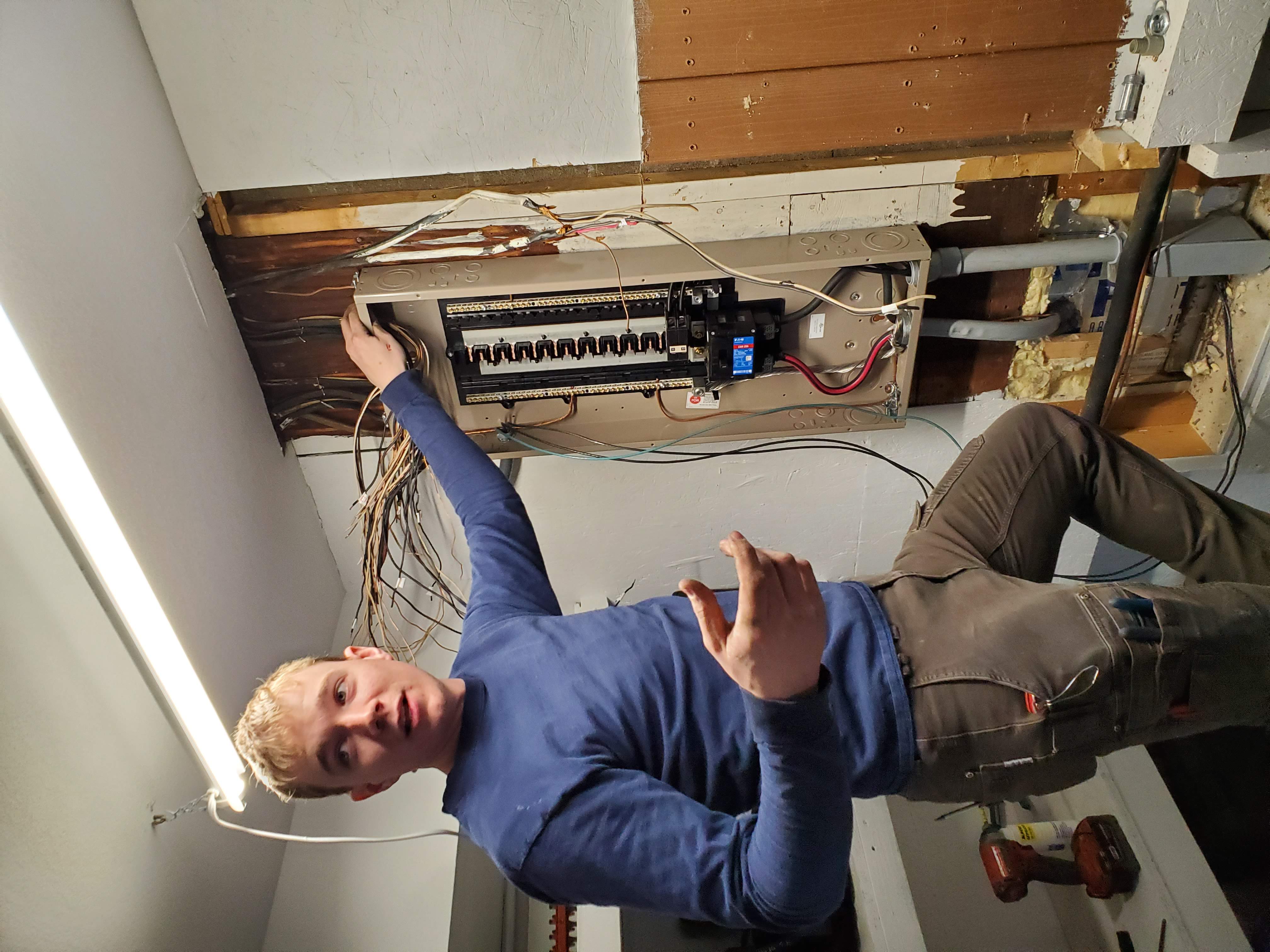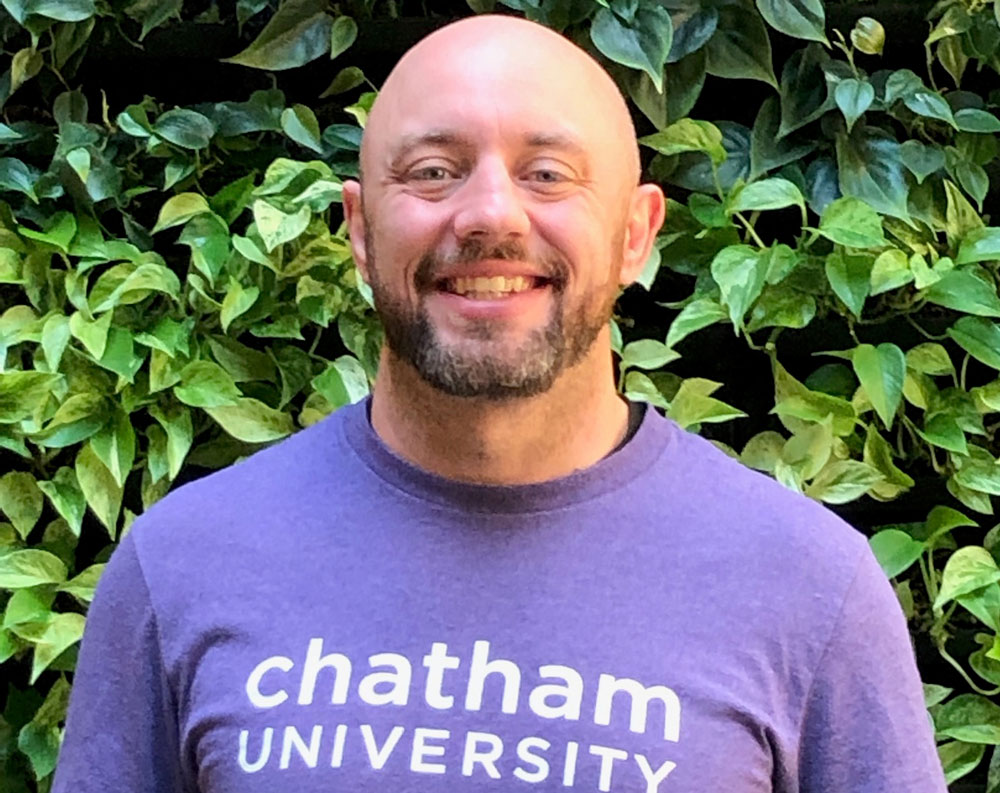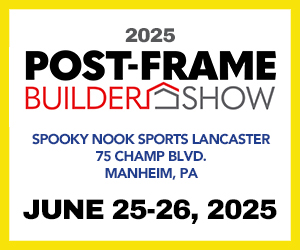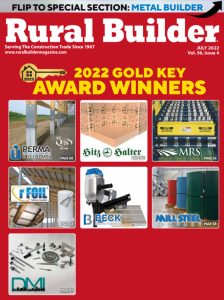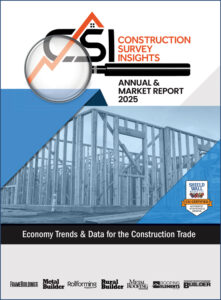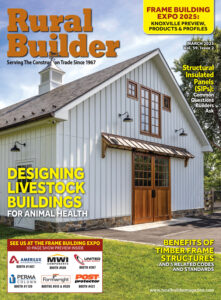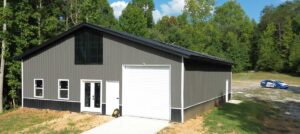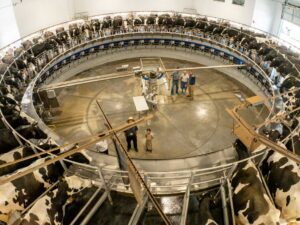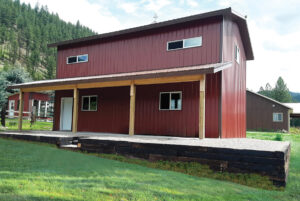By Linda Schmid
Even in Chicago, a city with a strong tradition of pride in blue collar work and union workers, students can experience pressure to attend a traditional college, even if that is not their natural inclination. Andrew Florczyk had that experience.
Andrew grew up in Chicago, and as the only son of divorced parents who moved around a lot, Andrew wasn’t sure what he wanted. He didn’t care for book learning; he liked sports, trying out softball, basketball, and flag football, but in high school, he discovered he also liked art. The teachers were pushing college. It seemed that they were saying that if you didn’t go to college and get a degree, then you wouldn’t make any money, you wouldn’t survive, you wouldn’t be anybody.
In his final year of school, he started working at Walgreens and he stayed there for five and a half years, and he felt like he’d learned pretty much everything there was to learn. At that point a friend told him about an opening at TradeTec Skyline. He got the job, and after the first year he began training in IronCAD and attempted to move into the design portion of the industry. The need for an additional designer fell through and with two years at the company, budget cuts left him unemployed.
Time to Try the Trades
Andrew’s dad stepped in at that point advising Andrew to get into a trade. “My dad was in the sheet metal trade, in the 73 sheet metal union. He’s very pro-union,” Andrew added.
“That’s when it hit me,” Andrew said, “if I got into HVAC, I could count on my dad to answer any questions and help me through it. So I applied to the 73, HVAC and Pipefitters Union. I got into both,” he added.
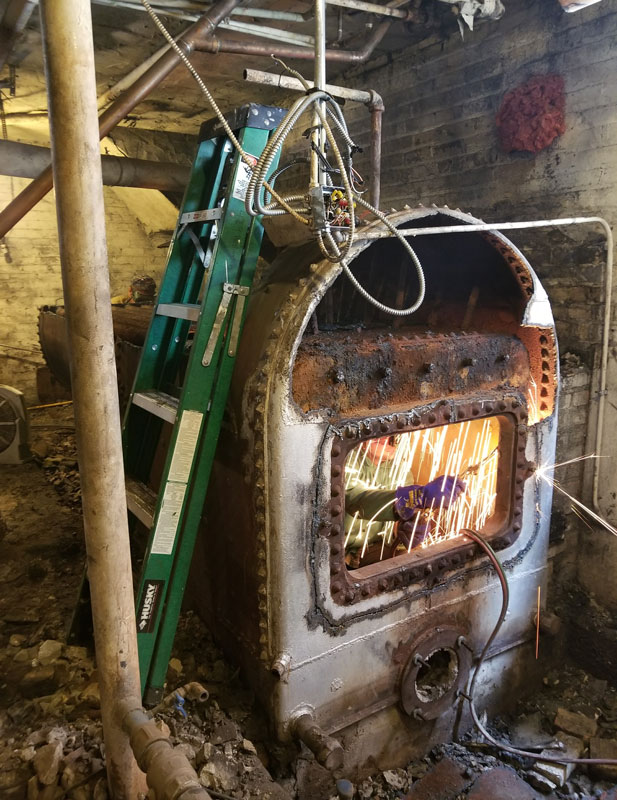
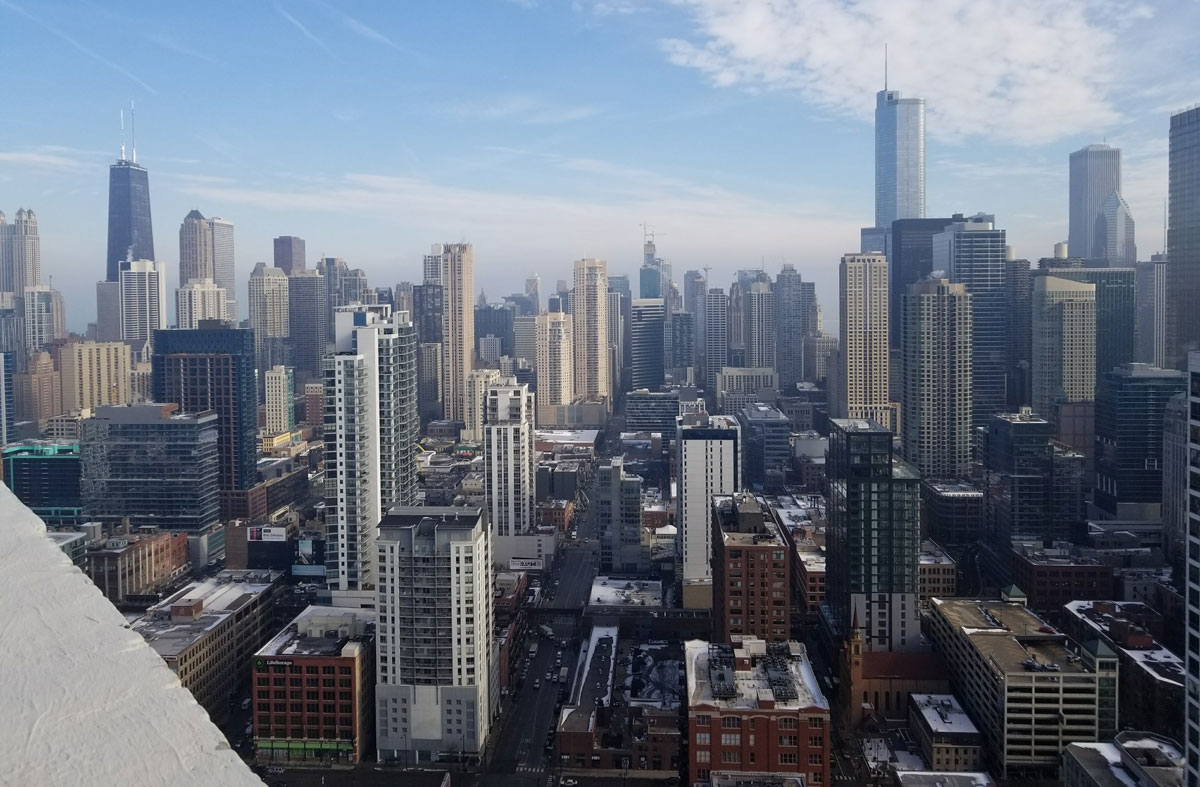
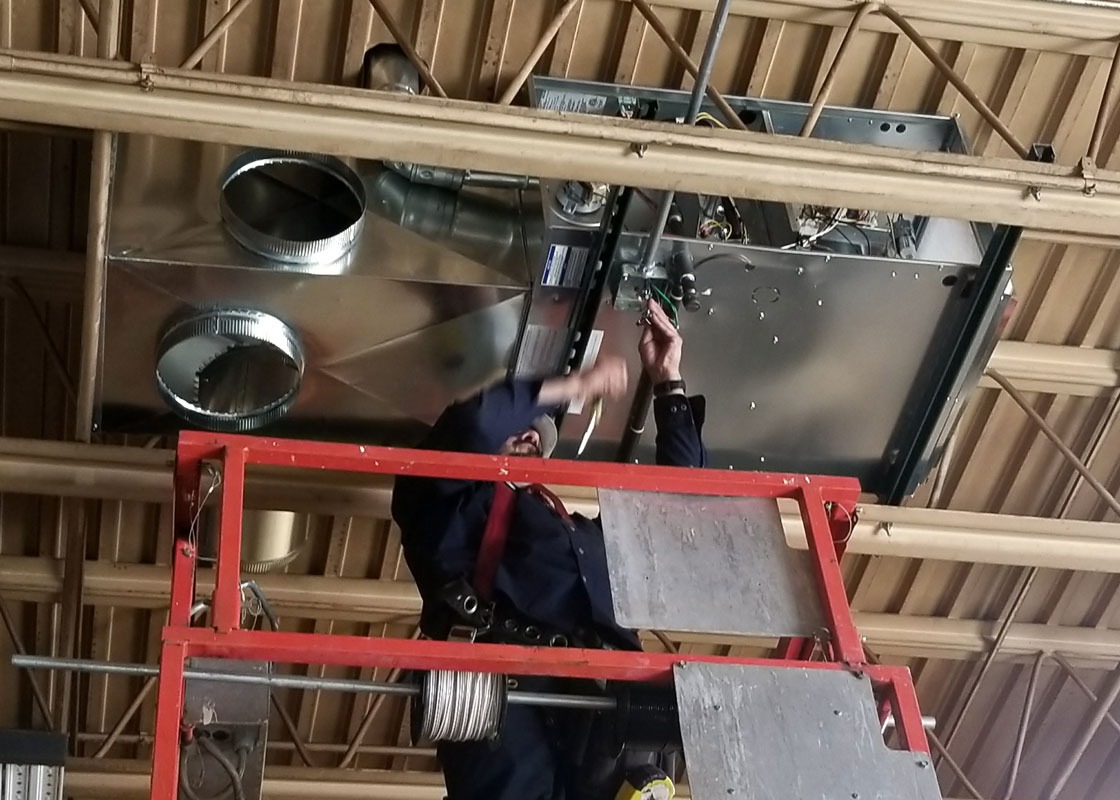
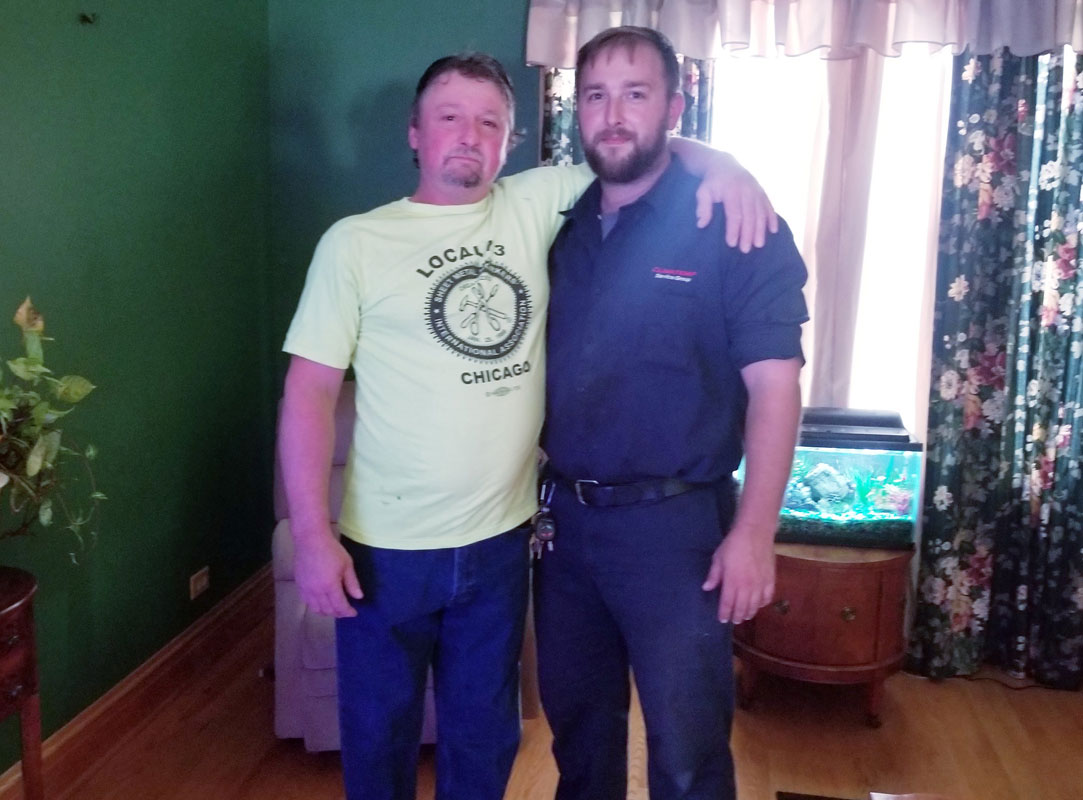
Andrew Florczyk and his dad, Andrew Sr.
His dad got him a job with Joe, a buddy, to get some experience under his belt before he began an apprenticeship. He learned a lot about boilers working for Joe. While working days with Joe, Andrew took night classes four days a week at ETI School of Trades. He applied for and won the mikeroweWORKS scholarship, which helped with tuition. His dad provided half his tuition, and Andrew worked, so he was able to pay off the balance fairly quickly.
While classes at ETI were coming to an end, he interviewed and was accepted at Climatemp working in a warehouse position, but he was quickly promoted to an apprenticeship. This was a good situation for Andrew because he was in class one day a week and out in the field the other four days of the week. They more or less threw him in the deep end to see if he’d sink or swim, though he could call for help on troubleshooting. Working his apprenticeship reinforced what he learned at UTI, and soon people came to rely on him to help with projects.
Midwest Mechanical bought ClimateTech, and while some of the people he had learned from moved on, Andrew enjoyed his work, and he says the company treated him well, keeping him busy and paying him slightly above scale. Then COVID reared its ugly head and classes were interrupted. However, pandemic or no pandemic, HVAC work moved on. Cancelled classes simply meant he had more time to learn in the field. When others went home to work or couldn’t work, he was busy fixing heating systems, air conditioners, boilers, and chillers. UV light was needed to mitigate microscopic contaminants, and thicker filters were installed. Sometimes getting supplies was a challenge, but having enough work never was. Andrew is happy to have found work that is so necessary, it will always be needed.
Moving On When Class Is Done
Andrew finished his apprenticeship last year. He said that at the end of it, you are assigned a job grade based on what kind of work you do. “C” cards are for are for 25-ton systems and below. “B” cards are for those who work on up to 50-ton systems, including commercial refrigeration, like he did. “A” cards are for workers who handle large systems upwards of 100 tons, including industrial work. There are incentives for attendance of further classes and training, and as you learn more, you make more.
“A shop will pay you over scale if you are experienced and good at what you do,” Andrew said. “Top dollar is $55 per hour, but you can make up to 5% over that.”
“The truly awesome thing about this work,” Andrew said, “is once you think you’ve learned everything, there is still more to learn. Companies are redesigning systems for higher efficiency, which entails new technology. It is cool to see the advancements in heating and cooling. There are systems that transfer heat from one room to another; they measure the air temperature, moving some of the heated air to cooler rooms. There are so many advances in air conditioning and heating, such as inducer motors and safer and more reliable components. A person could specialize in control work, a subset of HVAC. You can specialize in the manufacturing sector. Some specialize in high efficiency boilers. I went to the East Coast for training, and I can now set up and troubleshoot those boilers.
“There are a million and one different things you can learn,” Andrew continued. “You can segue into other things, like advanced technology and electronics. If you prefer physical work, you can tear down boilers. The main reason I chose HVAC as a trade is because you get to learn about air flow, refrigerant, plumbing, water, pumps, pipethreading, and electricity. You have to be able to troubleshoot. Some machines have LEDs to tell you what is wrong but, with the older ones, you just have to figure it out. If you are doing installation, assembling sheet metal, you will learn about spec sheets and blueprints. You are never done learning.”
How Do You Know If the Trades Are For You?
Andrew’s first and most important advice for those interested in going into any trade is to always be aware of your surroundings, yourself, and others for safety’s sake. Tag out breakers and verify nothing is in the way, or something could explode. But don’t be afraid to get dirty; you may get some cuts and bruises, but if you are careful, they are minor.
If you think you might be interested in the trades, Andrew suggests starting by taking things apart and putting them back together again. You’ll learn about the components and what they do. Try to determine what is not working properly. Think outside the box.
You need to be able to move forward with your work even when the weather is not great. Sometimes you will have to work outside when it is raining or it is very hot or freezing cold, but when the weather is nice, it makes up for it Andrew said.
Finally, depending on the types of jobs you work on, you may end up spending a lot of time working alone, so if you don’t like that idea, this work may not be for you.
If you are the right person for the job, at the end of the day you will know that you have helped people and that is important.
Andrew said. “Having someone say, ‘thank you, thank you, thank you for fixing this for me, is the best feeling in the world.” RB
As a result of a collaboration with mikeroweWORKS Foundation (www.mikeroweworks.org), Rural Builder is featuring profiles of Work Ethic Scholarship recipients in each of its issues. Over 1,500 scholarships have been awarded to trade-school students who value hard work and taking personal responsibility. Rural Builder applauds these students and wants to acknowledge their choice to apply their talents to skilled trades. Thank you, mikeroweWORKS Foundation, for your continuing efforts to close the skills gap and “reconnect the average American with the value of a skilled workforce.”
